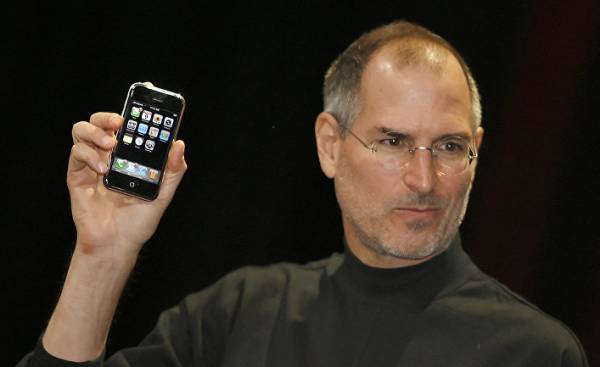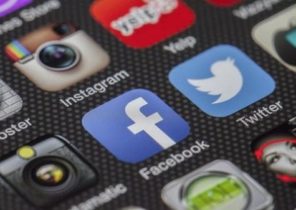
Atlantico: In what areas we were able to adapt better, and what is not? What are the consequences of this “revolution”?
Catherine Legal: a Decade of smartphones — is an occasion to look back and take stock of the revolution, which they made in our lives.
They impact on all spheres — personal, intimate, professional… we Can say that they changed our relationship to time, space and information. In fact, our relationship to the world in a philosophical sense.
They formed a feeling of speed, of urgency, showed that all can be found on the arm, condensed time. We are doing several things at once, jumping from one to another… and it’s About space, there is a feeling of being in several places at the same time. Can simultaneously be transport and carry love letters. Finally, information is now available everywhere and free.
We can’t adjust to such an influx of information: the attention has become a rarity. Every day around the you receive the same information as for the entire period of existence of mankind until 2003! We have to develop new skills: to be selective, to look at the source to weed out the important from the unimportant…
At work we have to put up with interruptions every five minutes. But the brain is not adapted to jump from one to another, and we have to resist the attraction of an incoming message to concentrated to work at least ten minutes. Otherwise, our day becomes a chaotic kaleidoscope of tasks, which leads to complete loss of the sense of dissatisfaction, because we know not what we do. In addition, it may happen that we were too busy only the priorities and needs of others.
Michael Stora: Your question implies that as the iPhone has adapted to us, and how we have adapted to it. The iPhone is one feature which has always been paid much attention to Steve jobs (Steve Jobs). He always believed that a car purely technical side needs to adapt to the person standing in the service of ease and convenience. The ergonomics of the iPhone is directly connected with the intuitiveness of its use. Unlike other phones (about the cost we’re not talking), the almost instantaneous development is the Apple brand. This is despite the fact that the environment of competitors “Apple” like Android is much more open. iPhone is a very closed and tightly controlled world, which entails close to fetishism attitude on the phone. It would be a huge queue at the beginning of sales of new models…
Anyway, the main innovation of this smartphone was the convenience from a practical point of view. Useful functions (phone, navigation, information search, etc.) are combined with “useless” like social networks. In this respect, the smartphone has resulted in almost constant checking of social networks users, who want to know if there are any new comments, likes, etc. a Specific and real benefit of all this brings. Nevertheless, the main secret of success in this.
— Not have arisen if we had some kind of addiction? And isn’t this an obstacle to our peace and even democracy, since that relies on the acceptance of the difficulty of the world, which at the moment is rejected?
Catherine Legal: at work and in private life, we prefer the present to the detriment of the long term and immersion, although our ontology and identity are built on a long-term basis. In addition, it can lead to the fact that we jump from one information to another without prospects and suspension. A holiday is the perfect time to slow down, to feel connected with your five senses, communicate with friends, swim in the sea.. Not documenting all of this on the net!
Michael Stora: Here, of course, control is required. iPhone answers our gestures and gaze. With the advent of Siri, he still responds to our voice, that is subject to us. From this moment on, the iPhone becomes an extension of our senses. Question time very interesting, because the moment real in terms of information and the smartphone to significantly speed up things, which previously would have taken much more time. Anyway, here there are other human difficulties: if you write the girl a message of “Love, miss”, but it is not fast enough responding to you though as you seem to be able to do it, human nature takes over, creates doubt and irritation.
Smartphone exacerbates this feeling, because it is a tool for rapid expression of emotions.
The issue of democratization is associated with the facilitation of information dissemination and communication platforms like Twitter: it’s about the almost complete abolition of time for reflection. Reactions are becoming more emotional and, as we see every day, more and more aggressive. People don’t think through the answer, not engaged in a critical assessment of the situation. It also raises the question of the presence/absence: it is now visible a new approach to dealing with compensation for the absence of the interlocutor with the abundance of emotions that perfectly reflects the success of the Emoji character. The absence of the interlocutor requires visual compensation, and iPhone is primarily a visual world. It fills a certain existential void.
— Does all this obstacle in assessing the world in which we live? Addiction to the present moment does not prevent us to adapt?
Catherine Legal: This revolution happened recently, and we still need time to adapt and develop new habits. Take a look at brought a smartphone for ten years changes: he replaced a player, camera, Navigator, TV, and game console… All of it was parallel with the improvement of the quality of communication and, in particular, the advent of 4G networks. And unlimited tariffs that encourage the consumption of content! Anyway, man is a social creature, and he has a desire to share moments with others. After all, you can listen to music on headphones in the transport, but nothing beats the thrill of a live concert with others.
Michael Stora: Addiction is probably too strong a word, because we are not tied to the subject itself. Yes, some Pat him and did not let go. It becomes their favorite toy like a Teddy bear of a child who tries to use it to compensate for the absence of her mother. We are talking about compulsive emotional functions. If we consider all the details, it becomes clear that here we are dealing with addiction to others through social networking sites or online games.
It affects us from the standpoint of the senses. We have five of them: touch, taste, sight, hearing and sense of smell. Taste, touch and smell make it possible to live close to an external body. Vision and hearing in turn correlated with distance. Touching your finger to the iPhone, we can touch a picture and enlarge it, allowing you to close the distance, to compensate for the sensitive anxiety of separation.
Catherine Legal (Catherine Lejealle), doctor of sociology, telecommunications engineer, expert in mobile telephony, the Internet and social media.
Michael Stora (Stora Michael), psychologist and psychoanalyst, President of the Center for digital media in the Humanities.







